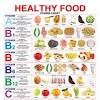What should I eat before heavy cardio?
What to Eat Before a Workout
- If you are eating 30-60 minutes before: It is recommended that you eat a high carbohydrate, moderate protein, and low fat snack before exercising.
- If you are eating 2-3 hours before: It is recommended that you eat a high carbohydrate, high protein, low fat meal before exercising.
Should I eat before intense cardio? In general, if you are performing a cardio high-intensity session at the gym you should fuel up beforehand. Otherwise, you might experience those unpleasant early fatigue symptoms throughout your training or extreme tiredness immediately after.
When should you eat before cardio? Timing is just as important as food choice in keeping you energized throughout your workout. You should eat 30-60 minutes prior to your workout to allow the food to digest, and wait about 30-45 minutes to continue the fat-burning wave after.
What should I do before intense cardio?
Before your workout:
- Prioritize getting enough good quality sleep.
- Hydrate, hydrate, hydrate.
- Grab a snack.
- Make sure you’re wearing the right clothes and footwear for the workout you’re doing.
- Work in a dynamic warm-up.
- Stretch it out.
- And use a foam roller.
- Refuel with post-workout nutrition.
What should I eat before heavy cardio? – Additional Questions
Does doing cardio on an empty stomach?
In fact, some studies show you may burn up to 20% more fat when exercising on an empty stomach. That said, while a fasted workout can increase fat burning, it also increases muscle-burning because the body also turns to metabolizing the protein in muscle for energy as well.
How can I boost my energy before a workout?
How To Get Energy Before A Workout
- Eat Two To Three Hours Beforehand.
- Have A Quick Pre-Workout Snack.
- Hydrate, Hydrate, Hydrate.
- Drink Something Caffeinated.
- Choose A Fun Routine.
- Reschedule Your Workout.
- Take A Power Nap.
- Go Outside.
How do you prepare for a cardio workout?
The standard advice:
- Do a 5- to 10-minute warm-up at low intensity (50% to 60% of your maximum heart rate) to prepare your muscles for exercise and steadily raise your heart rate.
- Do whatever activity will be your workout for your warm-up.
- Next, stretch the muscles you will use in your workout.
How do you warm up before cardio?
Here are some examples of warm-up activities: To warm up for a brisk walk, walk slowly for five to 10 minutes. To warm up for a run, walk briskly for five to 10 minutes. To warm up for swimming, swim slowly at first and then pick up the tempo as you’re able.
Should I eat after cardio for fat loss?
Depriving your body of fuel after a workout also deprives you of the muscle and metabolic gains and the weight-loss benefits that come with them. With all that being said, “ultimately, it’s recommended that you try to eat within 50 minutes after a workout,” Michele told POPSUGAR.
Should I do strength before or after cardio?
Experts are split on this issue. The majority of fitness experts will advise you to do the cardio after the weight training, because if you do cardio first, it uses up much of the energy source for your anaerobic work (strength training) and fatigues the muscles before their most strenuous activity.
What is the best cardio for weight loss?
The best types of cardio to aid in weight loss are either low-impact, low intensity cardio like rowing, incline walking, and biking, or HIIT workouts implemented in small doses such as kickboxing, interval training, and weight training.
How long should you do cardio?
The Centers for Disease Control and Prevention (CDC) recommends 150 minutes or more of moderate-intensity physical activity, or 75 minutes or more of vigorous-intensity activity each week for overall health and disease risk reduction. Based on this guideline, you could do five brisk 30-minute walks a week.
Should you do cardio everyday?
If you’re trying to lose weight, you should aim for doing cardio at least five days per week for a total of at least 250 minutes (4 hours, 10 minutes) each week. Contrary to what many believe, you can do aerobic exercise seven days per week. If this goal seems daunting for you, start slow.
Will 30 minutes of cardio burn fat?
A new study shows 30 minutes of exercise a day works just as well as an hour in helping overweight adults lose weight.
What happens if you only do cardio?
If you only do cardio workouts, you may start to notice changes in your body that you don’t like. Here are a few cons of doing only cardio exercise: Muscle Loss: Cardio often puts the body in a caloric deficit state, where muscle becomes a source of fuel for the body.
How many calories do you burn with 30 minutes of cardio?
According to the Center for Disease Control and Prevention (CDC) , a 154-pound person can burn anywhere between 140 and 295 calories in 30 minutes doing cardiovascular exercise.
How many calories does 10000 steps burn?
What is 10000 Steps Equal To? “But,” continues Jamie, “if you walk briskly for 30 minutes and include enough activity throughout the day to reach the combined total of 10,000 steps, you’re burning about 400 to 500 calories a day, which means you’re losing one pound each week.”
What exercise burns the most calories?
206 calories per 30 minutes
Running at even a slow pace burns a lot of calories for 30 minutes. On average, running burns between 10.8 to 16 calories per minute and putting it at the top of the list of workouts that burn the most calories. To up the calorie burn, increase the intensity or add in sprint intervals.
How often should I do cardio to lose belly fat?
To shed that stubborn belly fat, you should work your way up to 30 to 60 minutes of moderate-intensity activity four to five times a week. That sounds like a lot, and if you have a busy schedule, it may be difficult to find the time. But that doesn’t have to be four to five sessions of running.
What are the signs of losing belly fat?
10 signs you’re losing weight
- You’re not hungry all the time.
- Your sense of well-being improves.
- Your clothes fit differently.
- You’re noticing some muscle definition.
- Your body measurements are changing.
- Your chronic pain improves.
- You’re going to the bathroom more — or less — frequently.
- Your blood pressure is coming down.
Why do I look fatter after working out for a month?
Newly strengthened muscles retain water, and for good reason. Weight training exposes muscles to stress to strengthen them, and the resulting soreness causes the surrounding tissues to swell until things calm down.



